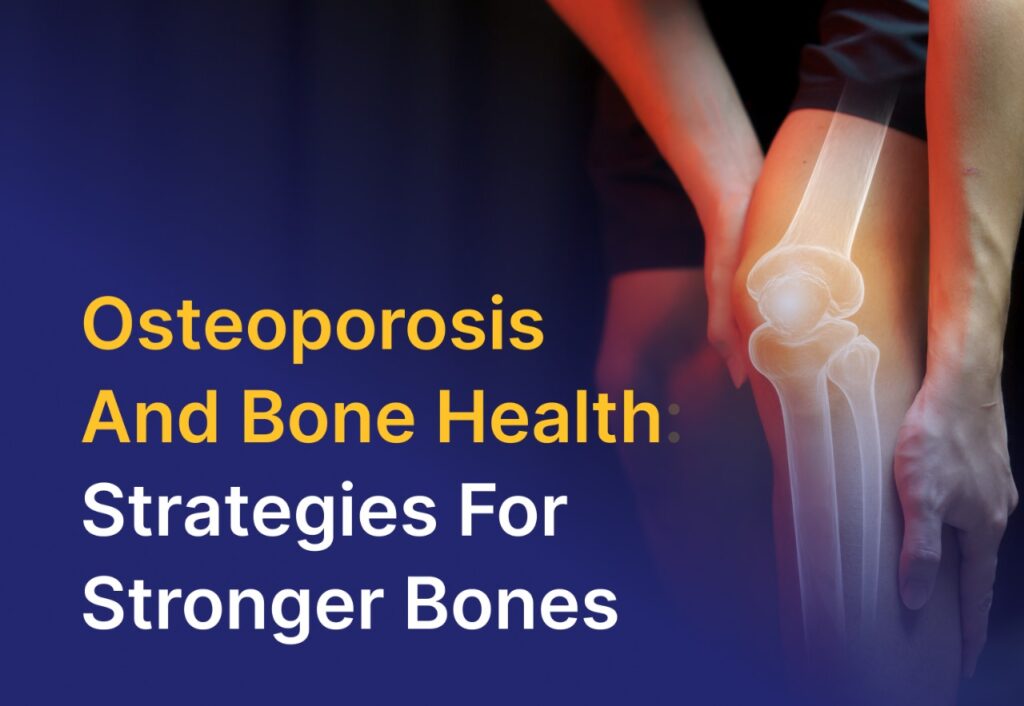- October 20, 2023
- By: admin
- No Comments
Osteoporosis and Bone Health: Strategies for Stronger Bones
The Science Behind Osteoporosis
Understanding the Causes
Genetics: Genetically, family history plays a pivotal role. Those with a family tendency to fracture are at a higher risk of developing osteoporosis. Moreover, the initial bone mass an individual possesses influences their vulnerability. Individuals with larger, denser bones can lose more bone mass without becoming prone to fractures compared to those who have lighter bones as young adults.
Lifestyle: On the lifestyle front, choices such as physical inactivity, low calcium intake, smoking, and heavy alcohol consumption can significantly affect bone health. A sedentary lifestyle can weaken bones over time, and a diet lacking essential nutrients like calcium and vitamin D can contribute to bone loss.
The Role of Hormones and Other Factors
Taking Preventive Measures
1. Balanced Diet
Protein: Lean protein sources like poultry, fish, beans, and lentils contain amino acids crucial for the formation of collagen, which provides bone structure.
Fruits and Vegetables: Antioxidant-rich fruits and vegetables are essential for bone health. They help reduce inflammation and maintain the balance of minerals necessary for strong bones.
2. Regular Exercise
3. Healthy Lifestyle Choices
Smoking is a significant risk factor for heart disease. If you smoke, quitting is one of the most impactful steps you can take to improve heart health. Seek support from healthcare professionals or smoking cessation programs to increase your chances of success.
Certain lifestyle choices can significantly influence bone health:
Quit Smoking: Smoking is detrimental to bone health as it interferes with calcium absorption in the intestines and reduces blood supply to bones.
Avoid Alcohol: Excessive alcohol consumption can weaken bones and increase the risk of fractures. If you consume alcohol, do so in moderation.
